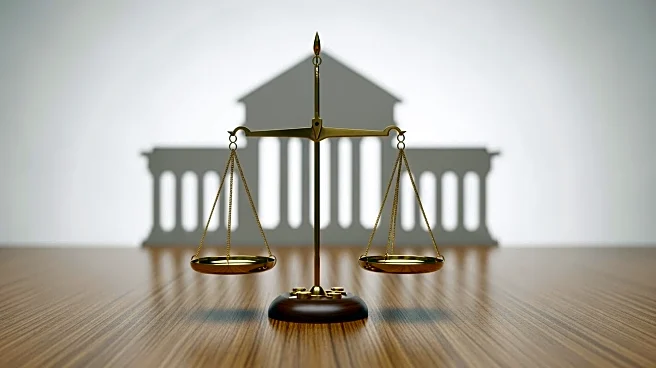What's Happening?
The Supreme Court has dismissed an appeal from Kim Davis, a former Kentucky county clerk, who sought to challenge the constitutional right to same-sex marriage. Davis had previously refused to issue marriage licenses to same-sex couples, defying the court's
landmark decision in Obergefell v. Hodges. Her appeal argued that the First Amendment's free exercise of religion should protect her from being sued for her actions. Despite her claims, federal courts, including the 6th Circuit Court of Appeals, have consistently ruled against her, stating that government officials cannot refuse to carry out their public duties based on personal religious beliefs. The Supreme Court's decision not to hear her case effectively upholds the lower court rulings and maintains the legal precedent set by Obergefell v. Hodges.
Why It's Important?
This decision reinforces the legal protections for same-sex marriage in the United States, affirming that personal religious beliefs cannot be used to deny constitutional rights. The ruling is significant in maintaining the separation between personal beliefs and public duties, ensuring that government officials adhere to constitutional mandates. It also highlights the ongoing legal and societal debates surrounding religious freedom and anti-discrimination laws. The Supreme Court's refusal to reconsider Obergefell v. Hodges provides stability for the estimated 823,000 married same-sex couples in the U.S., safeguarding their rights and those of their families.
What's Next?
While the Supreme Court's decision is final, the broader debate over religious freedom and its limits in public service continues. Advocacy groups may seek legislative changes or further legal challenges to address perceived conflicts between religious beliefs and anti-discrimination laws. The decision may also influence future cases involving similar issues, as courts continue to navigate the balance between individual rights and public duties.
Beyond the Headlines
The case underscores the ethical and legal complexities of balancing religious freedom with civil rights. It raises questions about the extent to which personal beliefs can influence public service and the potential consequences of allowing exemptions based on religious grounds. The ruling may prompt discussions on how to protect both religious freedoms and the rights of marginalized groups within the legal framework.















